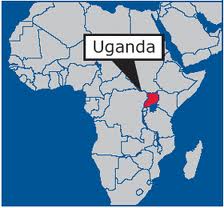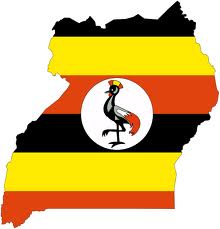ABOUT
UGANDA
Uganda
is called “the Pearl of Africa” by Winston Churchill, Uganda is a lush and
fertile country. This East African nation is rich in wildlife and natural
resources. Slightly smaller than the state of Oregon, Uganda is a landlocked
plateau straddling the equator and bordered by Sudan to the north, Congo to the
west, Rwanda and Tanzania to the south and Kenya to the east. The country lies
in a cradle of mountains and is home to half of Lake Victoria and the source of
the Nile River.
The
Republic of Uganda is a modern construct of the result of the unification of
ancient kingdoms and many smaller independent chieftaincies. In all, Uganda
embraces 52 different ethnic groups.
Music
and dance are integral to each of these cultures, as is a rich tradition of
storytelling and folklore. Uganda's population is estimated at nearly 31
million, 50% of whom are under the age of 15. English is the official language.
Uganda depends on an agricultural economy with 85% of its workforce engaged in
farming, forestry, and fishing -- largely on a subsistence basis. Coffee is the
main commercial and export crop. Others are fish, cotton, tea, flowers and
other horticultural products.
After
achieving independence from Great Britain in 1962, Uganda was ruled by two brutal
dictators: Idi Amin (1971-79) and Milton Obote (1980-85) who were responsible
for the deaths of nearly 1 million people. In 1986, Lt. General Yoweri Kaguta
Museveni seized power and established a government that remains in place today.
Under Museveni's tenure, Uganda's economy has stabilized, its education
improved, and its infrastructure steadily rebuilt.
 MAP
OF AFRICA SHOWS UGANDA MAP
OF AFRICA SHOWS UGANDA

 MAP
OF UGANDA MAP
OF UGANDA

UGANDA
FLAG
|